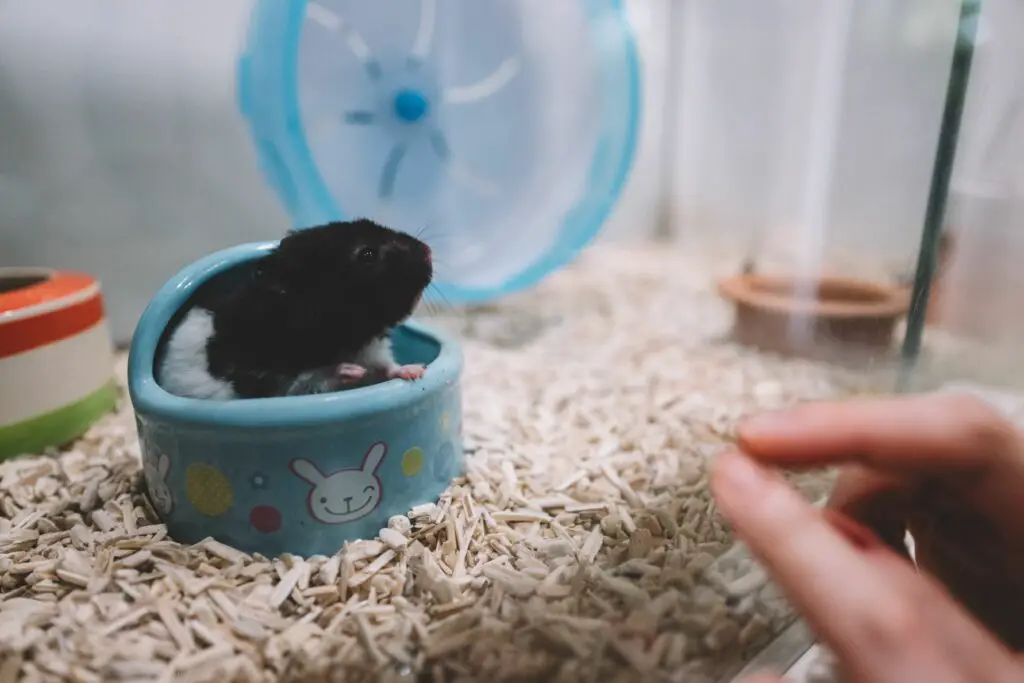Hamsters are adorable and popular pets, but they are known to be nocturnal creatures. This means that they are active at night and sleep during the day. If you have a hamster as a pet, you might have noticed that they can be quite noisy at night, which can affect your sleep. This blog post will cover everything you need to know about hamsters and their behavior at night, the factors that can increase their nocturnal activity, and strategies to reduce noise at night.

What is the Normal Behavior of Hamsters at Night?
Hamsters are known to be active at night, and they can run on their wheels or explore their cages. This is normal behavior for hamsters, and it is part of their natural instinct to be active at night. However, some hamsters can be louder than others, and this can be a problem for their owners who are trying to sleep.
Why Are Hamsters Noisy at Night?
There are several reasons why hamsters can be noisy at night. One of the most common reasons is that they may be running on their wheels. Hamsters love to run, and their wheels provide an excellent source of exercise. However, the sound of their wheels spinning can be quite loud, especially if the wheel is made of metal.
Another reason why hamsters can be noisy at night is that they may be exploring their cages. Hamsters are smart and curious creatures, and they love to explore their environment. They may be digging, climbing, or moving objects around in their cages, which can create noise.
Factors That Can Increase Hamster’s Nocturnal Activity
There are several factors that can increase a hamster’s nocturnal activity. These factors include dietary factors, social factors, and boredom.
Dietary Factors
Hamsters are omnivores, which means that they eat a variety of foods. However, some foods can make them more active at night. For example, if a hamster eats a lot of sugary foods or drinks, they may become more energetic at night. It is important to provide your hamster with a balanced diet and avoid giving them foods that can disrupt their sleep.
Social Factors
Though Syrian Hamsters should always be kept in solitude, some dwarf hamsters can be kept in pairs. If you have more than one hamster, they may become more active at night because they are playing or interacting with each other. However, if your hamster is alone, they may become more active at night because they are bored.
In addition, they might also be fighting which can have bad consequences, so it’s important to check on them if you have suspicions that they’re fighting.
Boredom
Boredom is another factor that can increase a hamster’s nocturnal activity. If your hamster does not have enough toys, activities, or space to explore, they may become restless and more active at night.
It is important to provide your hamster with a stimulating environment and toys to keep them occupied.
Strategies to Reduce Noise at Night
If your hamster is keeping you up at night, there are several strategies you can use to reduce noise.
Cage Placement
One strategy is to move your hamster’s cage to a different room or location in your home. If your hamster’s cage is near your bedroom, the noise can be more disruptive. Moving the cage to a different location can help reduce noise levels.
Cage Size and Quality
Another strategy is to invest in a larger and higher quality cage. If your hamster’s cage is too small or of poor quality, it can create more noise. A larger cage can also provide more space for your hamster to explore and play, which can reduce boredom.
Providing Adequate Toys and Accessories
Providing your hamster with enough toys and accessories can also reduce noise levels. If your hamster has enough toys to play with, they may be less likely to run on their wheel or move around their cage, which can reduce noise.
Training Your Hamster
Training your hamster can also help reduce noise levels. For example, you can train your hamster to use their wheel during the day instead of at night. You can also train them to sleep during the night and be more active during the day.
When Is Loud Hamster Behavior a Problem?
Loud hamster behavior can be a problem if it is excessive or if it is a sign of a health issue.
Excessive Noise
If your hamster’s nocturnal activity is excessive and disruptive, it can be a problem. If your hamster is keeping you up at night and you are unable to sleep, it can affect your health and well-being.
Health Issues
Loud hamster behavior can also be a sign of a health issue. If your hamster is making loud noises or acting abnormally, it can be a sign of pain, discomfort, or illness. If you notice any signs of health issues, it is important to take your hamster to the veterinarian for a check-up.
Fighting
If you have more than one hamster in a cage nighttime noises might be caused by fighting. It’s important that you keep an eye on this and separate them if necessary.
Conclusion
In conclusion, hamsters are nocturnal creatures that can naturally be noisy at night. However, there are several factors that can increase their nocturnal activity, and there are strategies you can use to reduce noise levels.
If your hamster’s nocturnal activity is excessive or if it is a sign of a health issue, it is important to take them to the veterinarian for a check-up. With the right care and attention, hamsters can be great pets that provide joy and companionship.
- How Long Do American Eskimo Dogs Live? Important Factors and Care Tips - September 29, 2023
- Do American Bulldogs Need Grooming? Essential Tips and Care Guidelines - September 29, 2023
- Do Bengal Cats Enjoy Playing? Essential Tips for Keeping Them Active - September 29, 2023